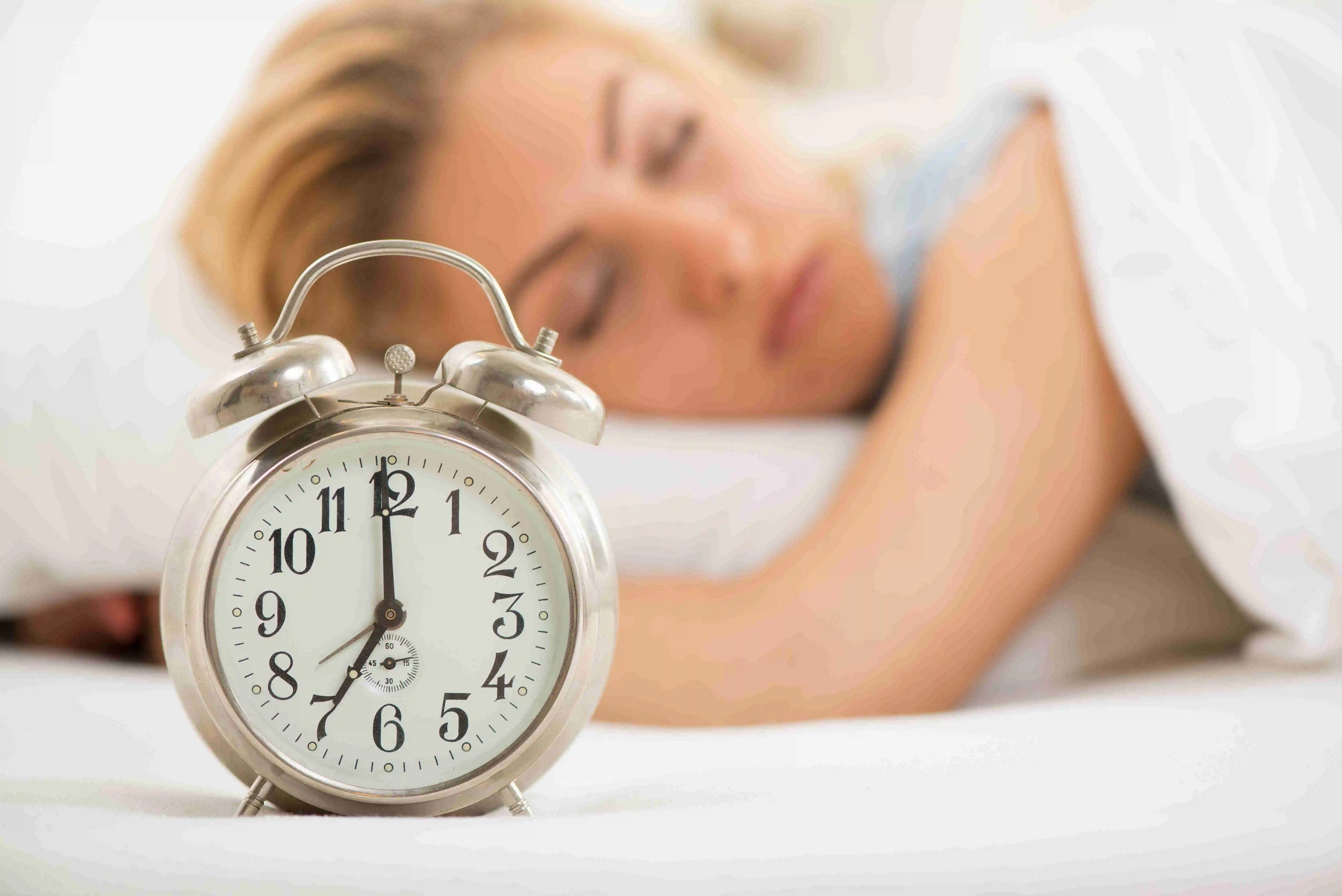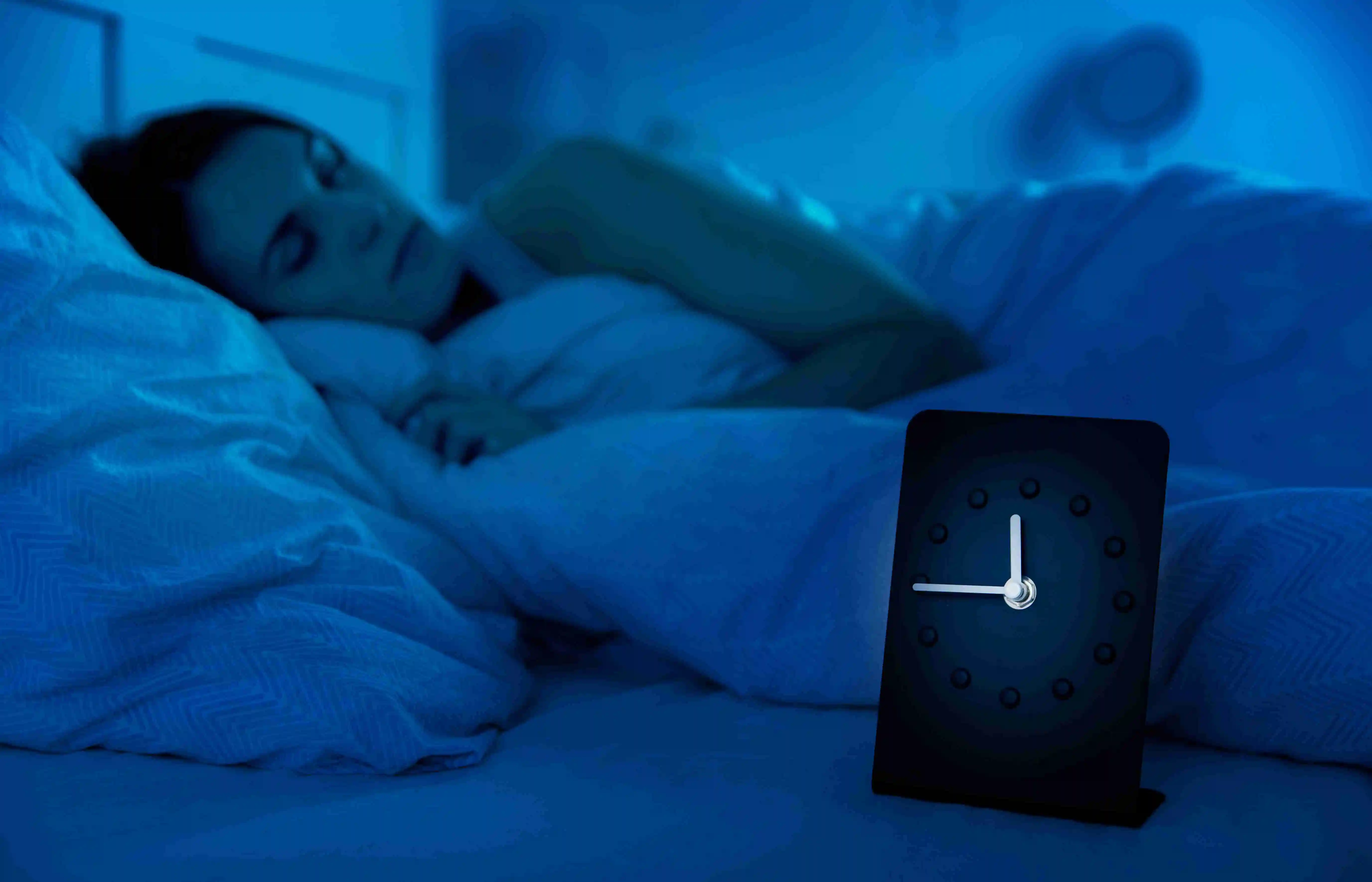Circadian rhythms play an important role in regulating our sleep-wake cycle, influencing our energy levels, mood, and overall well-being. Understanding the science behind circadian rhythms can highlight the importance of maintaining a healthy sleep schedule.
In this article, we will delve deep into the world of circadian rhythms and their impact on our sleep patterns, health, and daily functioning.
What is Circadian Rhythm?

A circadian rhythm is an internal 24-hour clock that regulates various biological processes in the body, including the sleep-wake cycle, body temperature, hormone release, metabolism, digestion, mood, and cognitive function. These rhythms are self-sustaining and persist even in the absence of external time cues.
Key Biological Processes Influenced by Circadian Rhythms
- Sleep-Wake Cycle: Circadian rhythms regulate the timing of sleep onset, duration, and wakefulness. The master clock in the brain coordinates the sleep-wake cycle based on environmental cues, primarily light and darkness.
- Body Temperature: Circadian rhythms influence natural body temperature fluctuations throughout the day, which could be improved by owning a cooling mattress.
- Hormone Release: Circadian rhythms play a crucial role in timing and releasing various hormones such as melatonin, cortisol, and growth hormone. Light and darkness are powerful cues that trigger the release of hormones in the brain and regulate vital body functions.
- Metabolism and Digestion: Circadian rhythms impact metabolic processes, regulating the timing of hunger, appetite, and digestive functions. The internal clock effectively times the conversion of food into energy based on environmental cues.
- Mood and Cognitive Function: Circadian rhythms influence mood, alertness, cognitive performance, and overall mental well-being. The master clock in the brain effectively times vital body functions, including those related to mood and cognitive function.
How Circadian Rhythms Work
Circadian rhythms are the internal biological processes that follow a roughly 24-hour cycle, influencing various aspects of human physiology and behavior.
The Suprachiasmatic Nucleus (SCN)
The suprachiasmatic nucleus (SCN) in the brain serves as the master clock that regulates circadian rhythms. It is responsible for coordinating the timing of various biological processes based on environmental cues, such as light and darkness.
Light (The Primary Cue)
Light exposure serves as the primary external cue for synchronising the body's internal clock with the 24-hour day-night cycle. It is the most important zeitgeber (a natural phenomenon which acts as a cue in the regulation of the body's rhythm) that entrails circadian rhythms and influences the timing of various biological functions.
Circadian Rhythms and Sleep

The relationship between circadian rhythms and the sleep-wake cycle is fundamental to understanding the timing and quality of sleep.
Circadian rhythms influence the timing of when we feel sleepy or alert, as well as the duration and quality of our sleep. Exposure to light, especially in the evening, can disrupt the natural production of melatonin, affecting the ability to fall asleep.
Furthermore, shift work and travel across time zones can lead to the desynchronization of circadian rhythms, resulting in jet lag and sleep disturbances. Maintaining healthy circadian rhythms is critical for synchronising the sleep-wake cycle and promoting restful sleep.
Impact on Sleep Quality
The following bullet points outline the results that occur when the body's internal clock, or the circadian rhythm, is thrown off balance or disrupted:
- Insomnia: Disrupted circadian rhythms can cause difficulty insomnia or staying asleep. Research indicates that insomnia is associated with a higher risk of developing chronic conditions such as cardiovascular diseases and depression. It can also lead to impaired cognitive function, decreased productivity, and an overall reduced quality of life.
- Excessive Daytime Sleepiness: Circadian rhythm disruptions can cause excessive fatigue and drowsiness during the day, leading to impaired alertness, reduced productivity, and an increased risk of accidents.
- Fatigue: Disrupted sleep patterns can result in chronic fatigue and lack of energy, impacting daily functioning and overall well-being.
- Digestive Problems: Research suggests a connection between disrupted circadian rhythms and gastrointestinal issues, such as increased susceptibility to gastrointestinal disorders.
- Mood Swings: Disrupted sleep can have a significant impact on emotional well-being and mood regulation, leading to increased irritability, anxiety, and depression.
- Weight Problems: There is a clear relationship between disrupted circadian rhythms, sleep quality, and weight management, with evidence linking insufficient sleep to weight gain and obesity.
- Weakened Immune System: Disrupted sleep patterns can negatively affect the body's immune function, leading to increased susceptibility to infections and an overall compromised immune response.
- Reduced Sleep Quality: Disrupted circadian rhythms can result in poor sleep quality, which is characterised by frequent awakenings, reduced deep sleep, and overall fragmented sleep patterns.
- Increased Sleep Disorder Risk: Disrupted circadian rhythms can contribute to the development of various sleep disorders, including insomnia, sleep apnea, and non-24-hour sleep-wake disorder.
Factors Influencing Circadian Rhythms
- Light: The role of light exposure, both natural and artificial, is crucial in regulating circadian rhythms. Exposure to light influences the body's internal clock and helps maintain a healthy sleep-wake cycle.
- Sleep Schedule: Maintaining a consistent sleep-wake cycle is essential for healthy circadian rhythms. Irregular sleep patterns can disrupt the body's internal clock, leading to circadian rhythm disorders.
- Age: Circadian rhythms can change and become disrupted as individuals age, leading to alterations in sleep patterns and overall sleep quality.
- Chronotype: The concept of chronotype, whether an individual is a morning person or an evening person, can significantly affect circadian rhythms, with implications for sleep patterns and overall health.
- Diet: Dietary habits, including meal timing and nutrient intake, can influence circadian rhythms. Disrupted eating patterns can impact the body's internal clock and contribute to circadian rhythm disorders.
- Exercise: Physical activity plays a role in regulating circadian rhythms. Regular exercise can help synchronize the body's internal clock and promote healthy sleep-wake cycles.
- Travel: Jet lag and travel across time zones can disrupt circadian rhythms, leading to temporary sleep disturbances and an overall impact on health.
- Medical Conditions: Certain medical conditions, such as sleep disorders or hormonal imbalances, can lead to disrupted circadian rhythms, affecting sleep quality and overall well-being.
- Shift Work: Irregular work schedules and shift work can negatively impact circadian rhythms, leading to an increased risk of circadian rhythm disorders and associated health consequences.
Health Implications of Circadian Rhythms

Increased Risk of Chronic Diseases
- Metabolic Syndrome and Diabetes: Metabolic syndrome, characterized by conditions like large waist size, high triglyceride levels, and high blood pressure, significantly increases the risk of developing Type 2 diabetes. This syndrome is closely linked to overweight and obesity, further compounding the risk.
- Cardiovascular Disease: Metabolic syndrome also elevates the risk of cardiovascular diseases, including heart disease and stroke. Overweight and obesity can lead to conditions such as high blood pressure and high blood cholesterol, further increasing the risk of heart-related issues.
- Obesity: Obesity is associated with a higher risk of developing chronic diseases such as cardiovascular diseases, respiratory problems, and certain cancers. It can also lead to metabolic syndrome, thereby increasing the risk of diabetes and heart disease.
- Cancer Risk: Obesity is linked to an increased risk of certain cancers, including colon cancer, breast cancer, and prostate cancer. Additionally, obesity-associated osteoarthritis poses a significant economic burden and leads to various health issues, including falls and fractures.
Mental Health Issues
- Sleep Disorders: Obesity, particularly in adults, can lead to sleep apnea, a common problem characterized by irregular breathing during sleep. Losing weight may help reduce the severity of sleep apnea or alleviate the condition altogether.
- Mood Disorders: While not directly linked to obesity, the physical health complications associated with obesity can have a significant impact on mental well-being.
- Cognitive Decline: Obesity and its associated health issues can contribute to long-term inflammation and problems with the immune system, potentially impacting cognitive function over time.
Learn More: Mental Health and Sleep.
Other Health Problems
- Weakened Immune System: Obesity may lead to long-term inflammation and problems with the immune system, potentially weakening the body's ability to fight off infections.
- Digestive Issues: Obesity is associated with non-alcoholic fatty liver disease (NAFLD), which is now the most common cause of chronic liver disease in the US and UK. Additionally, there is a positive correlation between increasing BMI and the development of gallstones.
- Skin Problems: Obesity may lead to darkened skin in certain areas, such as the armpits or the back and sides of the neck, as well as potential skin conditions related to the physical and metabolic effects of obesity.
Circadian Rhythm Disorders
- Delayed Sleep Phase Syndrome (DSPS): Individuals with DSPS have a delayed sleep-wake pattern, meaning they have difficulty falling asleep at a conventional bedtime and struggle to wake up in the morning.
- Advanced Sleep Phase Syndrome (ASPS): ASPS is the opposite of DSPS, where individuals experience an early sleep-wake pattern, falling asleep and waking up much earlier than desired.
- Non-24-Hour Sleep-Wake Disorder: This disorder is characterized by a circadian rhythm that is longer than 24 hours, leading to a gradual drift in sleep times, causing people to fall asleep and wake up at different times each day.
- Irregular Sleep-Wake Rhythm Disorder: Individuals with this disorder have fragmented sleep patterns with no clear consolidated sleep period, leading to multiple naps and wakeful periods throughout the day and night.
- Shift Work Sleep Disorder: This disorder occurs in individuals who work non-traditional hours, such as night shifts, leading to disruptions in their internal body clock and difficulties in obtaining quality sleep.
Ways To Treat Circadian Rhythm Disorders
- Light Therapy: Exposure to bright light, particularly in the morning, can help regulate the circadian rhythm and improve sleep patterns.
- Melatonin Therapy: Melatonin supplements can be used to help adjust the sleep-wake cycle, especially in cases of delayed sleep phases or non-24-hour sleep-wake disorders.
- Sleep Scheduling: Maintaining a consistent sleep schedule, including bedtime and wake time, can help regulate the circadian rhythm.
- Cognitive Behavioral Therapy for Insomnia (CBT-I): CBT-I is a structured program that helps individuals identify and change thoughts and behaviors that contribute to sleep problems, promoting healthier sleep patterns.
Ways To Prevent Circadian Rhythm Disorders
- Light Exposure: Regular exposure to natural light, especially in the morning, can help maintain a healthy circadian rhythm.
- Sleep Schedule Consistency: Maintaining a consistent sleep schedule, even on weekends, can help prevent disruptions in the circadian rhythm.
- Diet and Habits: Avoiding stimulants such as caffeine close to bedtime and adopting a healthy diet and exercise routine can support a healthy sleep-wake cycle.
- Relaxation Techniques: Engaging in relaxation techniques, such as meditation or deep breathing, can help reduce stress and promote better sleep.
- Manage Stress: Managing stress through mindfulness, exercise, or seeking support can help prevent disruptions in the circadian rhythm.
- See a Doctor for Underlying Conditions: Seeking medical attention for any underlying conditions that may contribute to circadian rhythm disruptions is important for prevention and management.
Benefits of Synchronized Circadian Rhythms
Enhanced Sleep Quality
- Effortless Sleep-Wake Cycle: Synchronized circadian rhythms help regulate the sleep-wake cycle, making it easier to fall asleep at night and wake up in the morning.
- Deeper, More Restorative Sleep: A synchronized circadian rhythm promotes deeper and more restorative sleep, allowing the body to undergo essential rest and repair processes during the night.
- Reduced Sleep Disorders: Maintaining a synchronized circadian rhythm can reduce the risk of sleep disorders such as insomnia, sleep apnea, and restless leg syndrome.
Improved Physical Health
- Boosted Immunity: A synchronized circadian rhythm supports the immune system, enhancing its ability to defend the body against pathogens and infections.
- Reduced Risk of Chronic Diseases: By promoting overall health and wellness, synchronized circadian rhythms can lower the risk of chronic diseases such as diabetes, heart disease, and obesity.
- Better Metabolic Regulation: Synchronized circadian rhythms help regulate metabolism, contributing to better weight management and overall metabolic health.
- Enhanced Physical Performance: Athletes and individuals engaged in physical activities can benefit from synchronized circadian rhythms, as they support improved physical performance and recovery.
Mental and Emotional Well-being
- Sharper Focus and Improved Cognitive Function: Synchronized circadian rhythms are associated with better cognitive function, including improved focus, attention, and memory.
- Elevated Mood and Reduced Stress: A well-regulated circadian rhythm can contribute to a more stable mood and reduced stress levels, promoting emotional resilience and well-being.
- Increased Energy Levels: By optimizing the sleep-wake cycle, synchronized circadian rhythms can lead to increased energy levels and improved overall vitality.
Consequences Of Having Circadian Rhythm Issues
- Sleep problems: When your circadian rhythms are out of sync, it can become more difficult to fall asleep at bedtime, lead to increased awakenings during the night, and ultimately result in reduced overall sleep. Initially, misalignment may be mistaken for insomnia, but frequent misalignment can contribute to the development of insomnia.
- Emotional imbalance: Sleep deprivation makes it more difficult to manage stress and regulate emotions, and if your circadian rhythms are out of balance, you are more likely to experience mental health problems like depression and interpersonal conflicts.
- Health complications: Out-of-sync circadian rhythms are associated with a range of health issues, including obesity, diabetes, heart attacks, high blood pressure, and cancer.
- Extreme Fatigue: Prolonged misalignment of circadian rhythms or a lack of a consistent routine to synchronise the internal clock can lead to symptoms of low energy and grogginess.
- Performance issues: If your circadian rhythms are disrupted, you are likely to encounter a variety of challenges that impact your ability to function effectively, such as excessive sleepiness, difficulty concentrating, memory issues, and trouble executing precise tasks.
Improving Your Circadian Rhythm for Better Sleep
- Set a Sleep Schedule: Gradually adjust your sleep and wake times by an hour or less each day until you reach your desired schedule. Once you establish your preferred sleep and wake times, strive to maintain a consistent schedule, even on weekends and days off work.
- Develop a Relaxing Bedtime Routine: Implementing a relaxing bedtime routine, such as reading a book or taking a warm bath, can signal to your body that it's time to wind down and prepare for sleep. Consistently following a calming routine before bed can help regulate your sleep patterns.
- Catch the Early Light: Exposing yourself to bright light, especially in the morning, can help reset your circadian rhythm. Morning sunlight or a bright light therapy lamp can help regulate your sleep-wake cycle and boost energy production.
- Plan Power Naps (Optional): If appropriate for your lifestyle, incorporating power naps can help you manage your energy levels throughout the day. However, it's important to keep them short and not too close to your bedtime.
- Exercise Regularly: Regular exercise, particularly in the morning, can promote healthy sleep. Exercising close to bedtime may disrupt your sleep and throw off your circadian rhythms, especially for morning people. However, the timing of exercise can vary for different individuals, so it's essential to find the optimal time that works for you.
- Limit Stimulants: Limit the consumption of caffeine, especially in the afternoon and evening, as it can disrupt your sleep and circadian rhythms. Similarly, it's advisable to avoid consuming alcohol at least one hour before bedtime, as it can also interfere with your sleep.
- Eat a Balanced Diet: Your meal times can influence your circadian rhythms. Research suggests that eating breakfast immediately upon waking and avoiding late dinners can help shift circadian rhythms earlier. Additionally, consuming food and drink in the first hour after waking up and 2-3 hours before going to bed can support your metabolism and digestive process.
- Create a Sleep-Conducive environment: Ensure that your bedroom is a screen-free zone and is conducive to sleep. This involves reducing exposure to artificial light and creating a comfortable and relaxing sleep environment that promotes quality rest.
- Dim the Lights and Limit Use of Electronics: Dimming your bedroom light 2–3 hours before sleep and reducing your use of electronics that produce artificial lights, especially those emitting blue light, in the hours before sleep can be beneficial. This practice can help reduce the impact of artificial light exposure on your circadian rhythms and prepare your body for sleep.
FAQs
Circadian rhythm definition? And how do circadian rhythms affect sleep?
The circadian cycle plays a crucial role in regulating the sleep-wake cycle. It helps determine when we feel alert and when we start to feel drowsy. Disruptions to the circadian rhythm, such as those caused by shift work or jet lag, can lead to sleep disorders and have a significant impact on overall health and well-being.
What factors can disrupt circadian rhythms?
Several factors can disrupt circadian rhythms, including irregular sleep schedules, exposure to artificial light at night, and certain medical conditions. Shift work, travel across time zones, and the use of electronic devices before bedtime can also disrupt the body's natural circadian rhythm.
How can I reset my circadian rhythm?
To reset your circadian clock, it's important to maintain a consistent sleep schedule, expose yourself to natural light during the day, and limit exposure to artificial light at night. To help regulate the circadian rhythm, avoid stimulants such as caffeine and engage in relaxation techniques before bedtime.
what are the health implications of disrupted circadian rhythms?
Disrupted circadian rhythms have been linked to various health issues, including sleep disorders, mood disturbances, cognitive impairments, and an increased risk of chronic conditions such as obesity, diabetes, and cardiovascular disease. Maintaining a healthy circadian rhythm is essential for overall well-being.
How does light influence circadian rhythms?
Light is the primary environmental cue that influences the circadian rhythm. Exposure to light, especially natural sunlight, helps regulate the body's internal clock. Bright light in the morning can help signal the body to wake up and start the day, while dim light in the evening can signal the body to prepare for sleep.
Can lifestyle changes alter circadian rhythms?
Yes, lifestyle changes such as maintaining a consistent sleep schedule, practicing good sleep hygiene, and managing exposure to light can help regulate and optimize circadian rhythms. Additionally, incorporating regular physical activity and a healthy diet into daily routines can further support a healthy circadian rhythm.
Conclusion
It has become increasingly evident that aligning our daily routines with our natural biological clock is essential for optimal health and well-being.
By gaining a deeper understanding of circadian rhythms, we can make informed lifestyle choices to improve our sleep quality and overall vitality.
Kelsey Butler, MS, RDN
Kelsey Butler is a Registered Dietitian Nutritionist with a Master's in Nutrition Sciences. She is an expert in nutrition research, coaching, and content development. Kelsey takes a mindful approach toward health and values building relationships with all foods. She understands the need to set personalized goals because not one size fits all, from dietary preferences to lifestyle habits.


